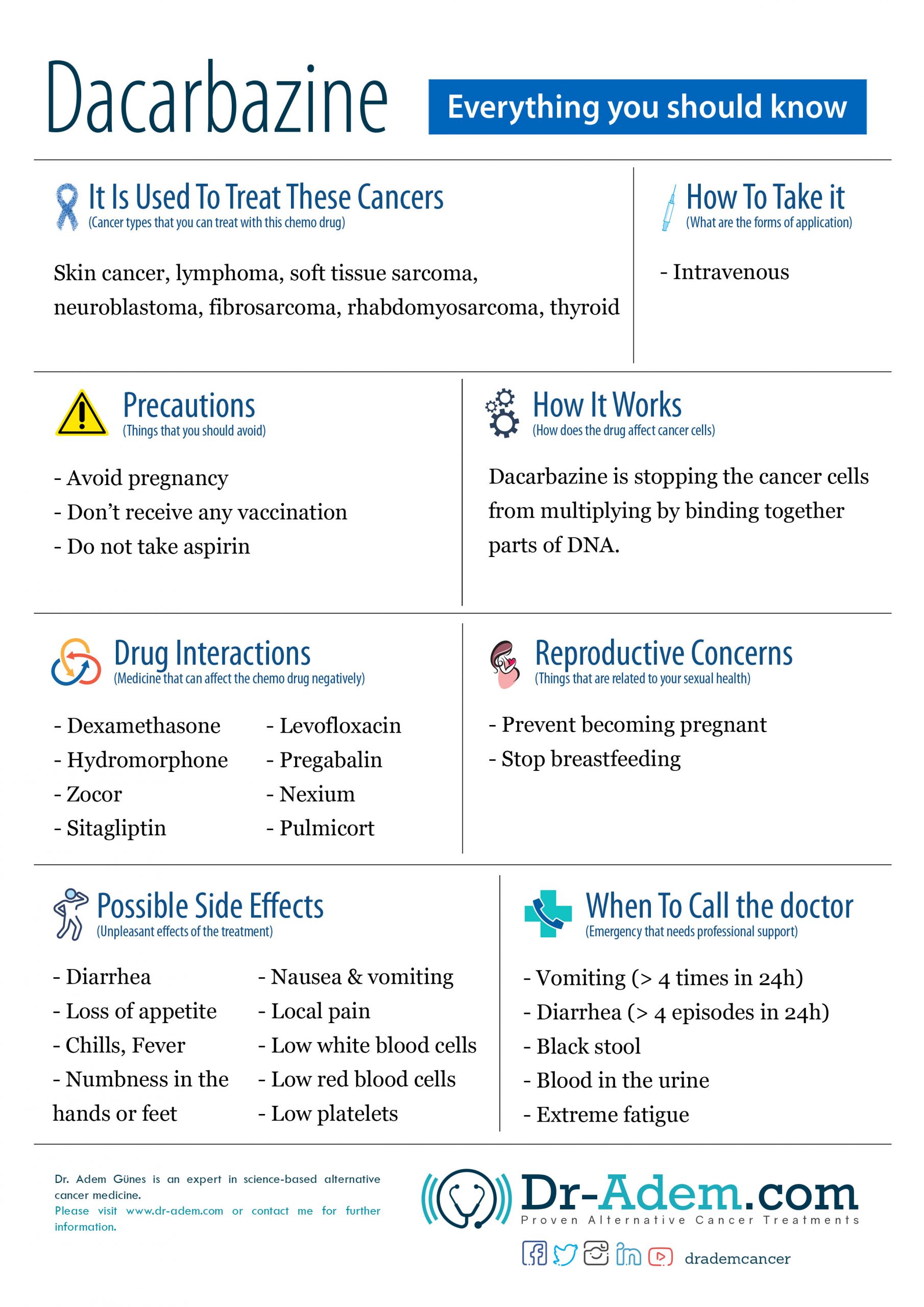Fact Sheet – Everything You Should Know
In this Dacarbazine fact sheet, you’ll get to know about the precautions, usage, possible side effects, and the types of cancer that you can treat with this chemo drug.

Embed this Infographic on your site:
<a href='https://dr-adem.com/dacarbazine-fact-sheet/'><img src='https://dr-adem.com/wp-content/uploads/2019/11/Dacarbazine2-scaled.jpg' alt='Dacarbazine Fact Sheet'/></a>Here’s the Dacarbazine fact sheet to get detailed information about Dacarbazine
It Is Used To Treat These Cancers
(Cancer types that you can treat with this chemo drug)
- Skin cancer
- Lymphoma
- Soft tissue sarcoma
- Neuroblastoma
- Fibrosarcoma
- Rhabdomyosarcoma
- Thyroid
How To Take it
(What are the forms of application)
- Intravenous (infusions take between 30-120 minutes)
Precautions
(Things that you should avoid)
- Avoid pregnancy
- Don’t receive any vaccination
- Do not take aspirin
- Vesicant drug
- Let your doctor know if you have kidney and/or liver problems
Mechanism of Action of Dacarbazine
(How does the drug affect cancer cells)
Dacarbazine is an alkylating agent (Hydrazine subgroup). It stops cell multiplication by binding irreversibly guanine bases in the DNA strand, making the cell division impossible. This effect affects mostly cancer cells because of their higher division rate when compared to healthy cells.
Drug Interactions
(Medicine that can affect the chemo drug negatively)
- Dexamethasone
- Hydromorphone
- Zocor
- Sitagliptin
- Levofloxacin
- Pregabalin
- Nexium
- Pulmicort
Reproductive Concerns
(Things that are related to your sexual health)
- Pregnancy prevention during and until 6 months after the treatment (men and women)
- Stop breastfeeding
- Consider sperm freezing if willing to bear children
Possible Side Effects
(Unpleasant effects of the treatment)
- Diarrhea
- Loss of appetite
- Chills, Fever
- Neurotoxicity: can translate into hand and feet numbness
- Nausea & vomiting
- Local pain
- Low white blood cells: raise the risk of bacterial infection
- Low red blood cells: can lead to fatigue, general lack of interest and drive to be active
- Low platelets: can lead to bleeding (nose, gums) and in extreme cases to internal bleeding (intestinal, brain, joints)
- Infertility
When To Call the doctor
(Emergency that needs professional support)
- Vomiting (>4 times in 24h): can lead to severe dehydration and electrolyte disbalance
- Diarrhea (>4 episodes in 24h): can also lead to severe dehydration and electrolyte disbalance
- Black stool: can be a sign of intestinal bleeding
- Blood in the urine
- Extreme fatigue: can be a sign of severe anemia (low blood cells)
- Fever > 37,8°C


